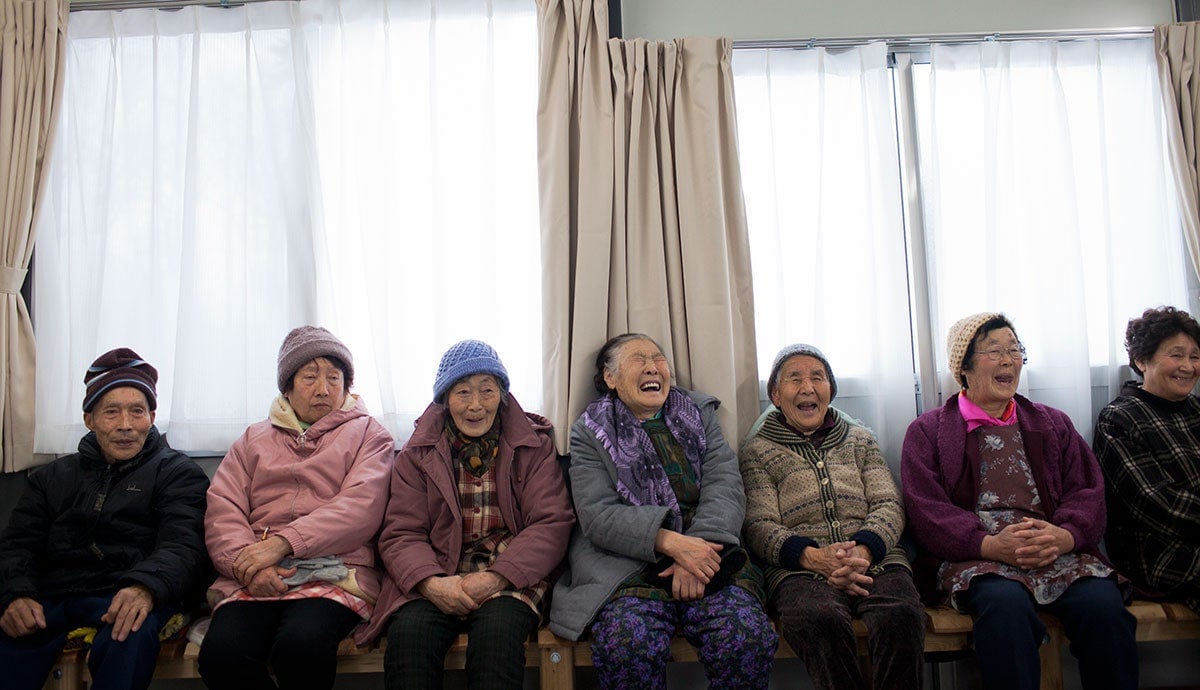Japan’s problems in numbers
Another Japanese leader has quit after a short term in office. Prime Minister Yoshihiko Noda dissolved parliament today, paving the way for a snap December election his Democratic Party of Japan are predicted to lose. Noda has only been in his job since September 2011.


Another Japanese leader has quit after a short term in office. Prime Minister Yoshihiko Noda dissolved parliament today, paving the way for a snap December election his Democratic Party of Japan are predicted to lose. Noda has only been in his job since September 2011.
His popularity dived in part because of Japan’s lackluster economy and his unwelcome plan to pay off the nation’s massive deficit, by raising sales tax. In Tokyo, leaders hardly stay in their jobs long enough to address Japan’s economic issues. But the country’s malaise can seem unsolvable. Here are the problems, in numbers:
6 = prime ministers
When Noda’s successor is announced, this is the number of prime ministers Japan will have had since October 2008. There is no real consensus on why Japanese prime ministers are so frail, or so quick to step down. Japanese people often say their sense of social stability resides in the emperor, which makes it easy for a prime minister to quit as soon as he has had enough. Others put it down to the strong culture of apologising, and the ultimate apology for failing to revive the economy is to commit career hara kiri. Also, the door that Japanese leaders jump in and out of with regularity can be a revolving one, allowing tired political leaders to return once they have had a rest. Shinzo Abe, the leader of Japan’s opposition Liberal Democratic Party, who looks likely to be elected next month, has been prime minister before.
12 = finance ministers
In a column, entitled “Another Japanese Prime Minister? Seriously?” Bloomberg columnist William Pesek notes that if the opposition win Japan’s December election, “Ben Bernanke can look forward to shaking the hand of the 12th Japanese finance minister since he became Federal Reserve chairman in February 2006.” Pesek argues:
Japan’s to-do list is a daunting one: reduce the world’s largest public debt without killing growth; sign global trade deals; increase competitiveness; prepare for an aging and shrinking population; increase immigration; learn to live without zero interest rates; encourage entrepreneurship; boost female participation in thelabor force; and wean itself off nuclear power. Ever wonder why none of these challenges ever gets tackled? Could it be that Japan’s leaders spend so much time trying to keep their jobs that they have little time to actually do them?
45.4 = the median age
As is well known, Japan has a very old population, especially for an Asian country. The median age (the age half the population is older than) is 45.4 years, the highest in the world other than Monaco, according to CIA data. (The median age is 28.5 in Indonesia, 26.5 in India, 35.9 in China, and 37.1 in the US). Japan has a huge challenge to pay for the pensions and healthcare for its ageing population, which itself is no easy task. The United Nations forecasts (pdf, p.286) that by 2050, over-60s will make up 42% of Japan’s population.
2 = goverment bodies responsible for finance that are gridlocked
Old people in Japan also present a big deficit-solving problem. They do not want to pay more tax. Japan could plug part of the deficit by taxing consumption, assets and inheritance at higher rates. That would not only raise money, it would take some of the tax burden off of Japan’s somewhat lifeless corporates (which pay the second highest rates of tax in the world after America) enabling them to spur economic growth by investing and creating jobs. Yet while the Bank of Japan would like to tax assets, consumption and inheritance, the Ministry of Finance usually blocks this as it would be too politically unpopular (ministry officials are elected). Economics consultancy GaveKal imagined that conversation in a research note issued today.
The BoJ: ”Our tax receipts have fallen from Y60tr to Y35tr in the past 20 years. We need to move away from a reliance on corporate taxes and instead tax consumption, assets and inheritance at higher rates.”
To which the elected officials at the MoF would typically reply: “That sounds great, but more than half of voters are either retired or will be soon. They’ve paid income taxes their whole working lives. If we increase the taxes on their assets, on which they already get meager returns, and tax their consumption, I am not going to hold on to my job past the end of this week.”
5%= amount the yen has risen against the US dollar this year
The Bank of Japan has been doing its best to weaken the yen. And the opposition LDP has promised to do everything possible to weaken the currency further. That is partly to beat inflation. The strengthening currency is one reason Japanese electronics exporters such as Sharp are having a hard time. But the euro-zone crisis and sustained weakness in the US economy has made the yen a popular safe-haven currency (video) and that trend is unlikely to reverse anytime soon. In a note published today, Capital Economics said: “we continue to think that demand for a safe haven from the crisis in the euro-zone will keep the yen firm for the next year or two. But thereafter, the eventual normalisation of interest rates in the US and the diminishing current account surplus in Japan suggest that the yen should fall more sharply.”